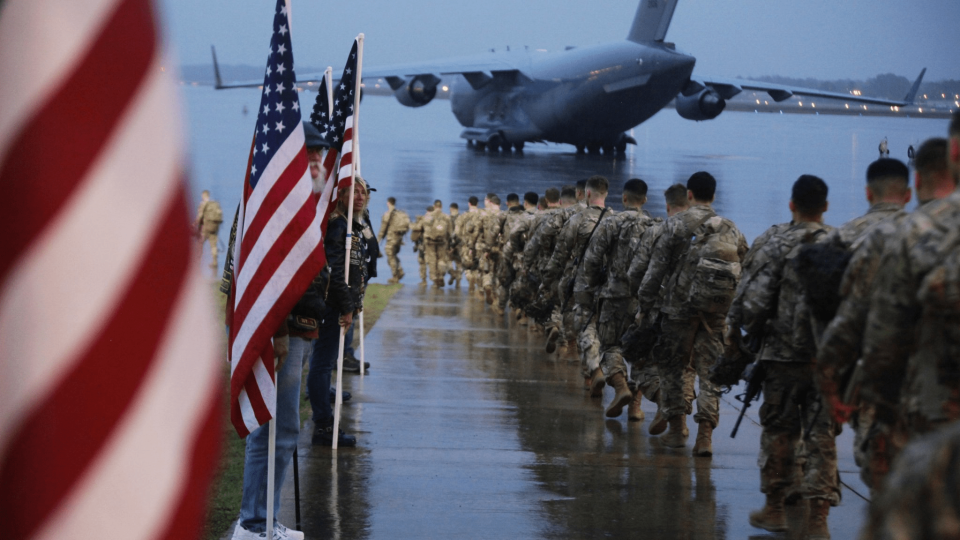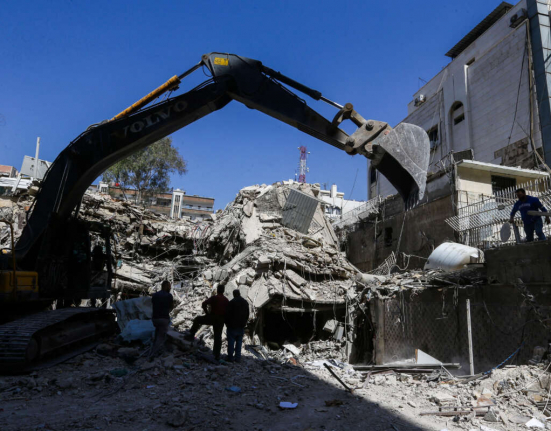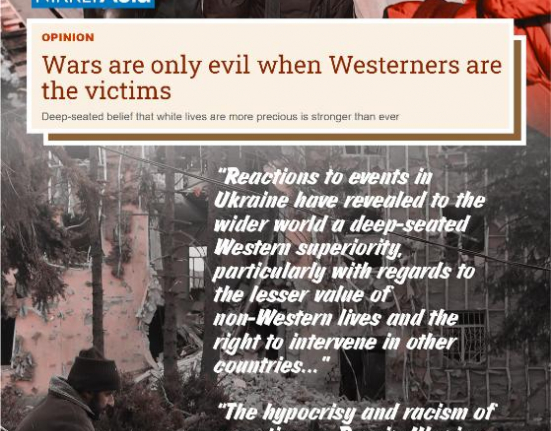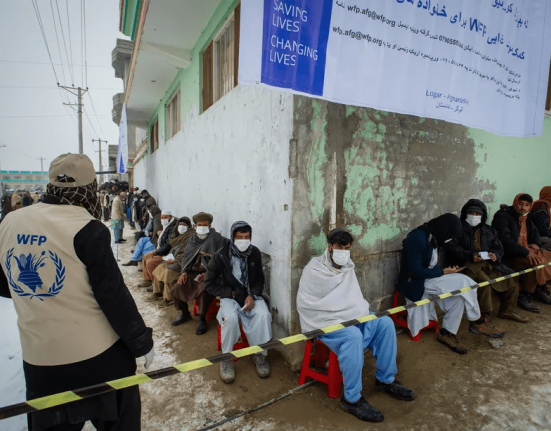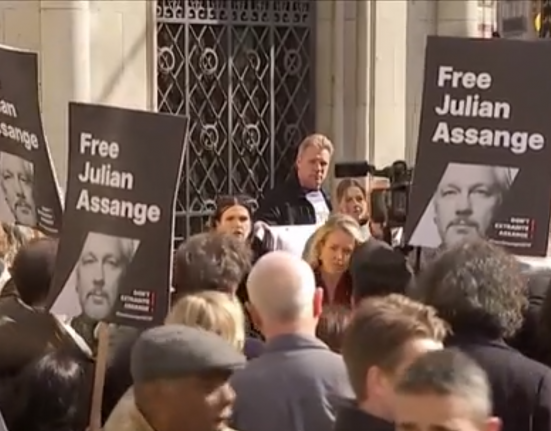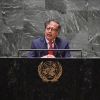by : Dr. Azam Mollai - Researcher of International Relations
The interests of the nations of the region are not in line with the goals of the United States
In the more than 70 years since World War II, although US policy in the West Asian region has experienced many setbacks, it has mostly contained the element of continuity. Over the years, the United States has always pursued the same geo-strategic and geopolitical interests, the most important of which has been to increase its influence and presence and prevent the rise of a hegemony in this strategic region (Prifti, 2017: 121). Of course, under Barack Obama (2011), the United States pursued a policy of relative withdrawal from the Middle East; the policy, which faced numerous internal oppositions, and was eventually reversed in 2014 under the pretext of confronting ISIS.
During Donald Trump's presidency, although Washington's reluctance to deploy ground forces in the Middle East continued and the withdrawal of US troops from Afghanistan began, the Trump administration, like its predecessors, believed that a complete US withdrawal from the region would be detrimental to the United States and its allies, and despite the gradual decline of the Middle East on the international stage due to the China and Russia uprising, the region is still important because of challenges such as radical Islam, nuclear proliferation, energy security, and Israeli security, and the United States cannot and should not ignore these issues.

Despite the differences in Joe Biden's political positions, he also pursued Trump's policy toward the West Asian region. Increased domestic pressure on his administration to reduce its military budget, along with increased base maintenance costs due to opposition from some countries (such as Iraq) to host US troops and bases, has changed the reduction of US troops abroad to a serious goal for Biden government.
. In this regard, in August 2021, the US Army completely withdrew from Afghanistan after nearly 20 years of war.
In addition to Afghanistan, the United States has reduced its military presence in several other countries in the region in recent years. It has reduced its troop numbers in Iraq from 170,000 in 2007 to 2,500 in 2021 and in Syria from 1,700 in 2018 to about 900 now (Allen, Martinez Machain, Flynn, January 5, 2022). However, despite these reductions, the country's presence in the West Asian region is still widespread and continues in various ways. The United States continues to have bases in Kuwait, Saudi Arabia, Bahrain, Qatar, the United Arab Emirates, Oman, Jordan, Iraq, Syria, and the Zionist regime. Although for security reasons the exact number of US troops in the region is not available, it is estimated that between 45,000 and 65,000 US military personnel are stationed in Turkey, Saudi Arabia and other Gulf states (Gibbons Neff, Sept. 20, 2021).
Accordingly, the Biden administration continues to disapprove of the complete withdrawal and closure of all US bases in the West Asian region, and believes that the United States must maintain its previous achievements and efforts in the region to maintain stability and security under global management and leadership. A view that, of course, is also encouraged by some American think tanks and strategists; saying that in order to spread American values such as democracy and the free market, the United States needs to maintain its position in the Middle East (Inbar, 2016: 48).
Thus, over the past decades, the United States seems to have "its own interests" in being present in the strategic region of West Asia as "the need and demand of the Middle East," "the need to counter the threat of terrorism," and "the need and importance of development of American values" and sought to legitimize its illegitimate military presence in the region. In the aftermath of the 9/11 attacks, the country justified the need for a pre-emptive war against the Taliban government in Afghanistan and a pre-emptive war against Saddam Hussein's government in Iraq, and strengthened its military presence in the region. The well-meaning interpretation of Article 51 of the UN Charter shows that this traditional article restricts the legitimate defense of states to actual armed attack and that legitimate defense against "threats" has no place in it (Wright, 1959: 560). Therefore, preemptive and preventive legitimate defense is not yet recognized and considered illegal in current international law, and US action has been a kind of anti-norm and a major detriment to international law.
Another important point is that the United States sees the military presence in strategic areas of the world, including the Middle East, as a factor to demonstrate its authority and consolidate global hegemony, and believes that the hasty and fruitless withdrawal from these areas is seen by the world as a weakness of the United States, In the 21st century, however, the nations of the world are more aware than to consider mere military presence as a factor in the authority of a superpower. Today, world public opinion basically does not approve the territorial occupation and foreign intervention, and in exceptional cases it wants and expects tangible results and achievements from the intervening power. Accordingly, the US military presence and intervention in West Asia could be credible for the country when the world can see the progress of the nation-state-building process, the formation of a strong bureaucratic and economic structure and fundamental changes in the legal and social situation of countries. At the present time, the disturbing news that is heard almost every day about the political, social, economic and security situation in the Middle East has revealed to the world public opinion that the US military presence in the region is not only a violation of international law, but also it has made very few, if any, gains, and has made virtually no contribution to increasing stability and security or to promoting socio-political freedoms and human rights in the region.
The world celebrated 2022 as Afghanistan returned to Taliban control in 1996 and, according to an official UN report, still lacks a systematic bureaucracy, a strong economy, and a cohesive and trained military. Poverty and misery, violations of women's rights and human rights, and the production and sale of narcotics are also rampant ("With Afghanistan 'Hanging by a Thread,' 26 January 2022).
19 years after the occupation and overthrow of Saddam Hussein's government, Iraq is not much different and, like many other countries in the region, is struggling with the same problems of government inefficiency, economic weakness, and of course terrorism and insecurity. The conflict between the Palestinian people and the Israeli regime continues to be more unjust and deadly than ever. In the rich Arab countries of the region, which are considered as home to the United States, there is no development of democracy, human rights and women's rights, and instead their countries have become centers for the purchase of American weapons and military equipment, and their governments due to the presence of this equipment become much aggressive. The Islamic Republic of Iran, as in the past, pursues its program of indigenous and introverted development in various military and nuclear fields and increases its regional power and influence.
Hence, it can be boldly said that the achievement of the US military presence in the West Asian region was neither zero nor completely negative, and not only did it not achieve the claimed goals of the United States, on the contrary, it has led to the formation of nationalist and anti-American opposition groups, and as a result has further weakened regional governments, increasing and deepening extremism and terrorism within the region. The arms race and the escalation of proxy wars between regional governments and the weakening of the desire and capacity of regional powers to establish a regional order have also been other fruits of US intervention and presence in the West Asian region; a process that, under normal circumstances and in the absence of US intervention, would have taken a different direction and could have led to lasting peace and stability in the region. In such a situation, leaving the region and ending the mistakes of the past is more credible for the United States than insisting on continuing to be present!
The detrimental effects of the US military presence in West Asia are so palpable that even university professors and researchers such as Daniel Bayman and Sarah Moller, who advocate a US military presence in the Middle East, have recently examined the military effectiveness of military alliances and also discussed the role of the United States in the Middle East:
The United States must acknowledge that its overall ability to influence some of the threats in the region is limited. The solution to many of the region's challenges is not the tools of conventional American power, and basically Washington's pressure on some complex political currents and the region's failed and weak governments has little effect. On the other hand, given the strong anti-American sentiment, the United States must prepare for a long period of instability and, of course, consider the possibility that rival governments may at some point jeopardize US interests and expand their influence and interests in the region (Byman, Moller, 2016).
Accordingly, the experiences of the US military presence in the West Asian region show that the long-term interests of the nations and countries of this region are in conflict with the strategic interests of the United States. That is to say if the region is secure and stable, national identity and values are strong and lasting and its governments are popular and efficient, and with mutual participation and cooperation to ensure regional order and security, there is no need for military presence and support. There will be no need to The United States’ military base and also no reason to buy large arms, all of which means weakening US influence, position and effect in this strategic region. Accordingly, the passage of time and the consequences of the US presence in the Middle East show the absurdity and futility of US claims to global governance. The fact is that in the 21st century, the United States, as Barry Posen, a professor of international relations at MIT, rightly points out, has become a clear symbol of the "non-liberal hegemony" that has withdrawn from diplomatic efforts and moved towards Military solutions (Posen, March / April 2018).
References
Allen, Michael A. Martinez Machain, Carla & Flynn, Michael E. (January 5, 2022). “After Afghanistan, US military presence abroad faces domestic and foreign opposition in 2022”. https://theconversation.com. 172360
Byman, Daniel. Bjerg Moller, Sara.(2016). “The United States and the Middle East: Interests, Risks, and Costs”. In Sustainable Security: Rethinking American National Security Strategy, edited by Jeremi Suri and Benjamin Valentino,
Tobin Project. Reproduced with the permission of Oxford University Press.
Gibbons Neff . Thomas (Sept. 20, 2021). “How U.S. Troops Are Preparing for the Worst in the Middle East”. https://www.nytimes.com.
Inbar, Efraim.(2016). “Implications of US Disengagement from the Middle East”. Mideast Security and Policy Studies, No. 122.pp: 45-81.
Prifti, Bledar. (2017). US Foreign Policy in the Middle East: The Case for Continuity. Washington: Palgrave Macmillan.
Posen, Barry R. (March/April 2018). “The Rise of Illiberal Hegemony”. https://www.foreignaffairs.com/articles.
Wright, Q. (1959), “US Intervention in Lebanon”, American Journal of
International Law, No. 53.
“With Afghanistan ‘Hanging by a Thread’, Security Council Delegates Call on Taliban to Tackle Massive Security, Economic Concerns, Respect Women’s Equal Rights”. (26 January 2022). https://www.un.org/press/en/2022/sc14776.doc.htm.

